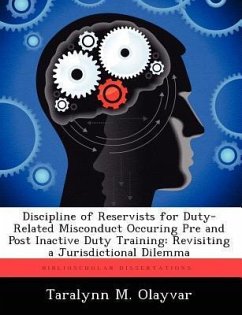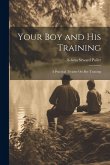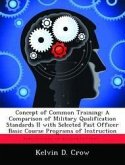This paper addresses whether jurisdiction under the Uniform Code of Military Justice (UCMJ) should extend to reservists who commit duty-related offenses near, but not during their inactive duty training (IDT). It analyzes the problem in terms of the "Saturday Night" dilemma, articulated by legal scholars in 1990. The dilemma highlights the problem of disciplining reservists who shoplift on base outside of IDT hours. The paper briefly summarizes the law regarding subject matter jurisdiction over reserve active and inactive duty. It suggests that a jurisdictional gap continues to exist, despite advances in case law on what constitutes the beginning and end of duty. Further, it argues that UCMJ jurisdiction should extend to duty-related misconduct even if outside IDT duty hours. The interests of good order and discipline and the receipt of military benefits and pay necessitate this jurisdictional extension. The paper recommends an amendment to the UCMJ through federal legislation. The amendment should clarify the jurisdictional boundaries surrounding inactive duty training.
Hinweis: Dieser Artikel kann nur an eine deutsche Lieferadresse ausgeliefert werden.
Hinweis: Dieser Artikel kann nur an eine deutsche Lieferadresse ausgeliefert werden.








